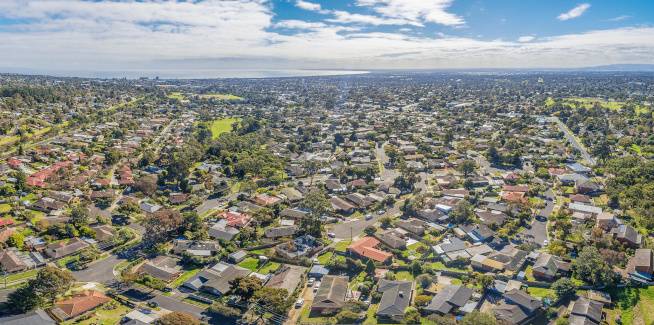The Australian Bureau of Statistics (ABS) has released its latest Residential Property Price Index, reporting that in the three months ending 31 March, home values dipped 3 per cent across Australia’s eight capitals.
When assessed annually, prices fell 7.4 per cent from the March quarter of 2018.
The sharpest quarterly decline was reported in Sydney (3.9 per cent), followed by Melbourne (3.8 per cent), Darwin (1.8 per cent), Brisbane (1.5 per cent), Perth (1.1 per cent), Canberra (0.9 per cent), Hobart (0.4 per cent) and Adelaide (0.2 per cent).
Sydney also reported the largest year-on-year slump, with prices down 10.3 per cent on the same quarter in 2018, closely followed by Melbourne (9.4 per cent).
Hobart and Adelaide were the only capital to report growth when compared to the March quarter of 2018, with home values rising 4.6 per cent and 0.8 per cent, respectively. Values remained stable in Canberra over the same period.
Reflecting on the data, ABS chief economist Bruce Hockman said: “These results are in line with soft housing market indicators, with sales transactions and auction clearance rates lower than one year ago, and days on market trending higher.
“A continuation of tight credit supply and reduced demand from investors and owner-occupiers has contributed to weakness in property prices in all capital cities this quarter.”
However, property research group CoreLogic’s latest Hedonic Home Value Index reported that in May, national dwelling values fell 0.4 per cent, which represented the slowest rate of decline since May 2018.
According to CoreLogic’s head of research, Tim Lawless, the improvement was primarily driven by lower rates of decline across Sydney (0.5 per cent) and Melbourne (0.3 per cent), which spurred the initial downturn in the housing market.
Mr Lawless said he expects the federal election outcome, which signalled the rejection of the Labor opposition’s proposed changes to negative gearing and the capital gains tax, to help build on an improvement in sentiment across the housing market.
He also pointed to APRA’s proposed changes to mortgage serviceability guidelines, noting that the removal of the 7 per cent interest rate buffer would improve access to credit, and in turn, demand for housing.
The CoreLogic analyst added that the Reserve Bank’s decision to lower the cash rate would also help stimulate demand in the sector.
[Related: Pace of property price slump slows to 12-month low]
 ;
;